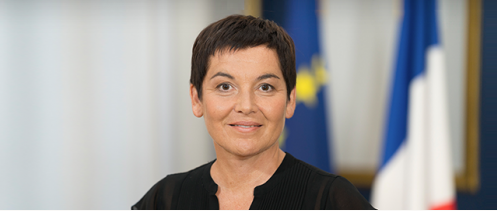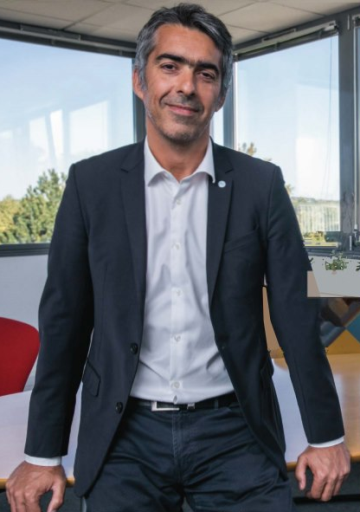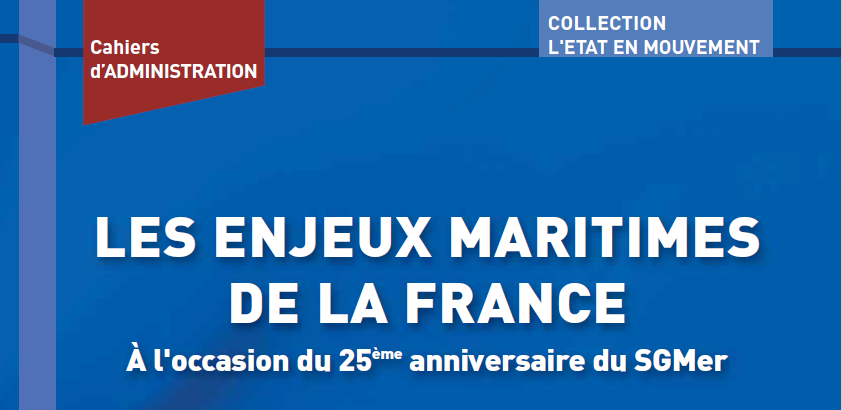On 22 November 2020, the French General Secretariat for the Sea celebrated its 25th anniversary. To highlight France’s maritime challenges and mark the occasion, the Cahiers d’Administration published a special issue. In an interview with Pierre Bahurel, Mercator Océan’s CEO, he highlighted the actions of Mercator Océan International and the importance of the digital ocean in promoting sustainable ocean management.
France’s maritime challenges
The second-largest Exclusive Economic Zone in the world belongs to France. Its maritime area is thus a real asset for economic development but also a complex territory to protect. Since 2017, aiming to balance the protection of marine resources and economic development, France has adopted a National Strategy for the Sea and the Coast. In July 2020, France created the Ministry of the Seaa decisive step to tackle ocean-related challenges (biodiversity, climate, economy, education, and so on) and draw sustainable benefits from the opportunities they offer . Moreover, France is equipped with the scientific, economic and public means to become a true leader and shine on all oceanic “causes”. Its new Minister for the Sea, Annick Girardin, has been cognizant of all these challenges ever since her term of office in Overseas France and steers this road map with pugnacity and conviction.

In the autumn of 2020, the “Cahiers d’Administration” published a special edition to highlight France’s maritime potential and the challenges it faces. Four key issues were addressed:
- protecting the marine environment and coastal areas
- building tomorrow’s blue economy
- safety and security at sea
- improving knowledge of the ocean: knowledge for protection.
In total, this special edition collected nearly 40 articles and testimonials and covered a wide range of subjects. For instance, Pascal Lamy, President of the Health of the Oceans Mission under the European research and innovation programme Horizon Europe, proposes, for example, the adoption of an integrated ocean management that includes the economy, the environment, geopolitics and science. Françoise Gaill, Vice President of the Ocean & Climate Platform, of which Mercator Ocean International is a member, invites us to take up the challenges faced by our blueplanet, in a global and holistic way. More economic issues are also addressed: for instance, Frédéric Moncany de Saint-Aignan, President of the French Maritime Cluster, presents French excellence in maritime industries.
The digital ocean at the service of the protection of the marine environment and coastal areas
 Mercator Ocean International, an organisation at the forefront of the analysis and modelling of the physical and biogeochemical ocean, produces and shares knowledge enabling public, commercial, industrial, institutional and educational players (…) to respond to the many challenges related to the marine environment, its protection and sustainable exploitation. Its historical role was to support the State’s action at sea. Today, the organisation operates a public service mission on behalf of the European Union so that public institutions, researchers and European and international companies can have access to reliable ocean data.
Mercator Ocean International, an organisation at the forefront of the analysis and modelling of the physical and biogeochemical ocean, produces and shares knowledge enabling public, commercial, industrial, institutional and educational players (…) to respond to the many challenges related to the marine environment, its protection and sustainable exploitation. Its historical role was to support the State’s action at sea. Today, the organisation operates a public service mission on behalf of the European Union so that public institutions, researchers and European and international companies can have access to reliable ocean data.
Pierre Bahurel, in his interview for the special edition of the Cahiers d’Administration, presents the advantages of building a digital ocean to promote the protection of the marine environment. The creation of a digital twin* of the ocean would enable the stakeholders not only to simulate the effects of different climate scenarios and potential disasters on the oceanic climate systembut also test the effectiveness of mitigation and adaptation plans. Developing such digital tools would therefore provide France, the Ministry of the Sea and the international community with easily accessible ocean data that will enable them to promote the protection and knowledge of the ocean anddevelop the blue economy.
*a digital replica of an object, process or system made with the help of artificial intelligence and which aims to facilitate the simulation or prediction of the modifications that the object, process or system could undergo.

